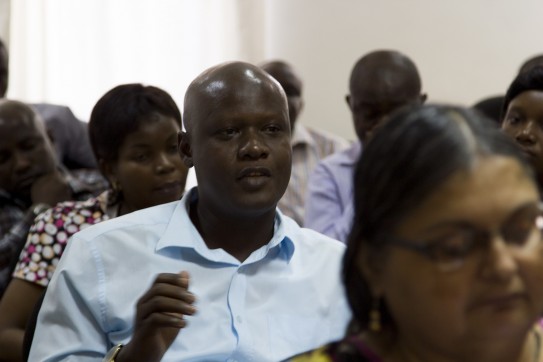
The ICT and Governance in East Africa study was conducted with the support of the Swedish International Development Cooperation Agency (SIDA) and theICT4Democracy East Africa Network. This study focused on the landscape of ICTs and Governance in Kenya, Uganda and Tanzania in 2014. It was a qualitative exploration of the various ways in which ICT tools can/have successfully facilitated or hindered the two-way interaction between government and citizens towards effective public service delivery, tracking corruption, rights/access to information, as well as increasing transparency and accountability. The study was conducted in two towns (one urban and one peri-urban) in Kenya, Uganda and Tanzania.
Read more on the project here
The study found that using ICT tools for governance offers greater chances for effective two-way interaction between citizens and government,when the tools are low-cost and non-Internet basedsuch as radio and feature phones. A summary of the project can be found here and the report is available for download here.
(Wilfred Warioba, Commission for Human Rights and Good Governance explaining a topic during the discussion)
As was the case in Kampala, the popular question from the participants at the forum was ‘what is the implication of these findings?’ The study makes recommendations on how stakeholders can make the most out of their investments and work in ICT and Governance particularly when it comes to achieving the goal of facilitating or enhancing the two-way interaction between citizens and government. In addition, participants in Dar es Salaam were interested in accessibility of the findings in the report both in terms of language and in reach.
It was suggested that research conducted should be translated and shared in information centers in rural areas so that not only people living in urban areas benefit from the findings. Feedback during this forum further confirmed some of the findings in the report, such as the limited awareness of the citizens on the existence of the e-Government portal in Tanzania. Some of the organizations and ICT and Governance related projects which took part in the study include Twaweza ni Sisi’s Sauti za Wananchi initiative, Tanzania Revenue Authority, Afyamap, and Ifakara Health Institute, all participating projects and organizations can be found in the annex section of the report available here.
We will be holding a dissemination forum in Nakuru, Kenya, on the 17th of September 2015 to share the findings from this study. We invite you to join us by registering here.

